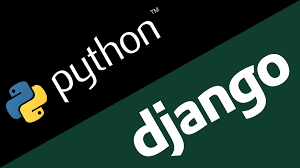Description
Introduction of SystemVerilog: Testbench Foundations
Welcome to SystemVerilog: Testbench Foundations! It is an extension of Verilog that enhances the capabilities of hardware verification. It introduces advanced features and methodologies for efficient and effective verification of digital designs. This training provides a comprehensive introduction to SystemVerilog for verification, covering its key features, applications, and best practices. Participants will learn how to leverage SystemVerilog’s rich set of constructs and methodologies to develop robust test benches and perform thorough verification of complex hardware designs.
Prerequisites of SystemVerilog: Testbench Foundations
- Basic understanding of digital design: Knowledge of digital logic circuits and design principles.
- Familiarity with Verilog: Prior experience with Verilog HDL is highly beneficial.
- Introduction to Hardware Verification: Basic knowledge of verification concepts and methodologies.
- Experience with EDA Tools: Familiarity with Electronic Design Automation (EDA) tools for simulation and verification is helpful.
Table of Contents
By the end of this training, participants will have a thorough understanding of SystemVerilog for verification including its advanced features and methodologies. They will be equipped to develop effective testbenches, implement assertions and cover groups also use object-oriented programming and apply constrained random testin
1: Introduction to SystemVerilog
1.1 Overview of SystemVerilog
- Evolution from Verilog to SystemVerilog
- Key features and enhancements in SystemVerilog
1.2 SystemVerilog Language Basics
- Syntax and constructs: Data types, operators, and statements
1.3 Session Activities
- Introduction to SystemVerilog syntax and basic constructs
2: SystemVerilog Data Types and Operators
2.1 Advanced Data Types
- Built-in data types: bit, logic, byte, int, string
- User-defined types: enum, struct, union
2.2 Operators and Expressions
- Arithmetic, logical, relational, and bitwise operators
2.3 Session Activities
- Writing SystemVerilog code using advanced data types and operators
3: Assertions and Covergroups
3.1 Assertions
- Introduction to SystemVerilog assertions: assume, assert, assume and cover
- Writing and using assertions for verification
3.2 Covergroups
- Defining covergroups and coverage bins
- Analyzing coverage results
3.3 Session Activities
- Implementing assertions and cover groups in a sample design
4: SystemVerilog Testbenches
4.1 Testbench Architecture
- Components of a testbench: DUT, testbench, and stimulus generators
- Connecting the testbench to the DUT
4.2 Creating Testbenches
- Writing testbench code using SystemVerilog constructs
- Generating stimulus and monitoring signals
4.3 Session Activities
- Developing a basic testbench for a sample design
5: Object-Oriented Programming (OOP) in SystemVerilog
5.1 OOP Concepts
- Classes, objects, inheritance, and polymorphism
- Encapsulation and data abstraction
5.2 SystemVerilog OOP Features
- Creating and using classes for testbenches
- Implementing inheritance and polymorphism in verification
5.3 Session Activities
- Writing and using SystemVerilog classes in a sample testbench
6: Randomization and Constrained Random Testing
6.1 Randomization Basics
- Generating random values and sequences
- Constraints and constraint solving
6.2 Constrained Random Testing
- Creating test scenarios with constraints
- Analyzing random test results
6.3 Session Activities
- Implementing constrained random test scenarios for a sample design
7: Functional Coverage and Coverage Analysis
7.1 Functional Coverage
- Defining and measuring functional coverage
- Writing covergroups and coverage points
7.2 Coverage Analysis
- Interpreting coverage reports
- Identifying and addressing coverage gaps
7.3 Session Activities
- Setting up functional coverage and analyzing coverage results for a sample design
8: SystemVerilog Interfaces and Modports
8.1 Interfaces
- Defining and using SystemVerilog interfaces
- Connecting interfaces to DUTs and testbenches
8.2 Modports
- Using modports for direction control and access permissions
8.3 Session Activities
- Creating and using SystemVerilog interfaces and modports in a testbench
9: SystemVerilog for Verification Methodologies
9.1 Verification Methodologies
- Overview of UVM (Universal Verification Methodology) and other methodologies
- Integrating SystemVerilog with UVM
9.2 Basic UVM Concepts
- UVM components: Agents, drivers, monitors, and scoreboards
9.3 Session Activities
- Introduction to UVM and integrating it with SystemVerilog for a sample project
10: Debugging and Error Handling
10.1 Debugging Techniques
- Using SystemVerilog for debugging: $display, $fatal and $error
- Techniques for debugging complex testbenches
10.2 Error Handling
- Handling and reporting errors during verification
10.3 Session Activities
- Debugging a sample design using SystemVerilog constructs
11: Advanced Topics and Case Studies
11.1 Advanced Features
- Exploring advanced SystemVerilog features and constructs
11.2 Case Studies
- Real-world examples of SystemVerilog applications and best practices
11.3 Session Activities
- Reviewing and discussing advanced topics and case studies
12: Project Work and Final Presentation
12.1 Capstone Project
- Participants work on a comprehensive verification project using SystemVerilog
12.2 Project Presentation
- Presenting the final project, including verification strategy, challenges, and results
12.3 Session Activities
- Final project presentations and peer reviews
g. The training will also prepare participants to integrate SystemVerilog with UVM and handle complex verification tasks in real-world scenarios.
If you are looking for customized info, please contact here







Reviews
There are no reviews yet.